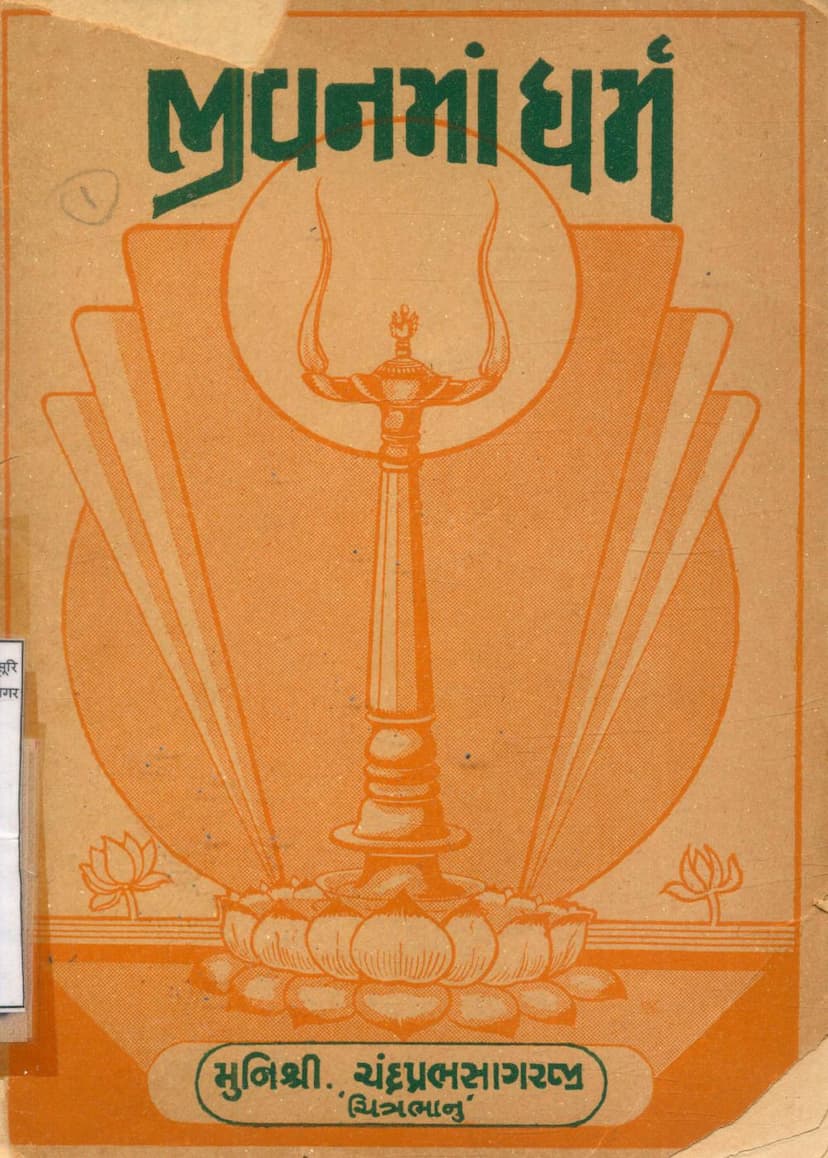Jivanma Dharm
Added to library: September 2, 2025

Summary
This Jain text, "Jivanma Dharm" (Religion in Life) by Muni Shri Chandrabh Sagarji Maharaj (also known as 'Chitrabanu'), published by Shah Lalbhai Manilal, is a profound discourse on the essential role of religion in human life. The book, drawing from the rich tradition of Jainism, emphasizes that true happiness and peace stem from righteous conduct and spiritual understanding, rather than material possessions or outward appearances.
The central theme is that while the world craves prosperity, happiness, and peace, these are not achieved by mere desire but by actively cultivating religious principles. Religion is presented as the tree that bears the fruit of happiness, and without planting the tree (practicing religion), one cannot expect the fruit. Conversely, sinful actions lead to ruin, suffering, and misery. The author criticizes the human tendency to indulge in worldly pleasures and sinful activities while still hoping for good outcomes, likening it to sowing neem seeds and expecting mangoes.
The text uses vivid analogies and historical anecdotes to illustrate its points. The author describes how external happiness can mask inner turmoil, comparing it to a beautiful dish of milk-rice that is rendered poisonous by a few drops of poison. Similarly, without religion, all worldly possessions and achievements are tainted with the poison of suffering.
Several examples are presented to highlight the impermanence of worldly wealth and the importance of spiritual preparation for the end of life. The tragic death of a millionaire in a plane crash serves as a stark reminder that wealth cannot guarantee a peaceful departure. The story of King Nabhiraja, who, despite his immense wealth and beautiful wives, found solace only when his senses were attuned to the subtle sounds of his own detachment, illustrates how even the most opulent enjoyments are meaningless without inner peace.
The discourse stresses the importance of Samadhi Maran (peaceful death) and the preparation for it through a life of virtue and devotion. It questions the pursuit of fleeting worldly pleasures, stating that the world does not belong to anyone, not even to great emperors. The author reminds readers that only good deeds accompany a soul in its journey, while the burden of sin remains.
The text also delves into the superficiality of modern life, where outward appearances and material success are often prioritized over inner spiritual growth. It criticizes the superficiality of certain types of religious observance, emphasizing that true religion is an inner transformation, not merely outward rituals. The author uses the metaphor of a deer searching for the scent of musk outside, unaware that it is within itself, to illustrate how people search for true happiness externally while it resides within.
The book also touches upon the importance of ethical conduct in all aspects of life, including business and social interactions. The example of a stingy millionaire whose hands, which never performed charitable acts, are deemed inedible by a fox highlights the consequences of a life devoid of generosity. Similarly, ears that have not listened to religious teachings or eyes that have only focused on sensual pleasures are also deemed unworthy. The author advocates for self-reflection and living a life aligned with religious principles, suggesting that true beauty lies in inner purity and spiritual development.
The narrative also includes a critique of historical portrayals in literature and emphasizes the importance of understanding and respecting historical figures. The story of Mahamantri Udayan, a loyal minister who faced death with spiritual fortitude, serves as an example of a life lived with purpose and devotion.
Ultimately, "Jivanma Dharm" is a call to introspection and a reminder that a life dedicated to religious principles, characterized by compassion, non-violence, truthfulness, and detachment, is the only path to lasting happiness and spiritual liberation. It encourages readers to cultivate inner virtues and integrate religion into their daily lives, transforming it from mere ritual into a lived experience.